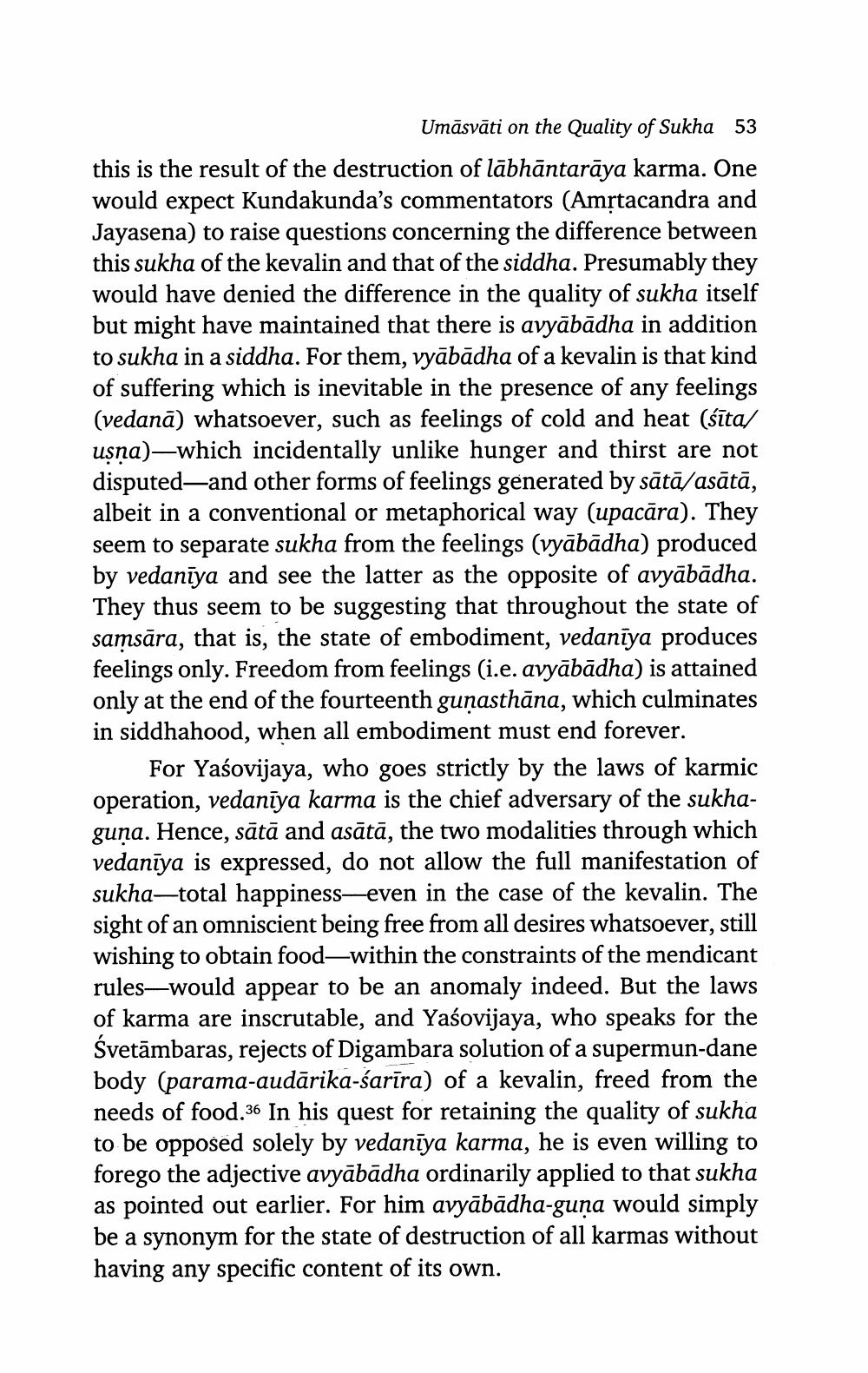________________
Umāsvāti on the Quality of Sukha 53
this is the result of the destruction of lābhāntarāya karma. One would expect Kundakunda's commentators (Amstacandra and Jayasena) to raise questions concerning the difference between this sukha of the kevalin and that of the siddha. Presumably they would have denied the difference in the quality of sukha itself but might have maintained that there is avyābādha in addition to sukha in a siddha. For them, vyābādha of a kevalin is that kind of suffering which is inevitable in the presence of any feelings (vedanā) whatsoever, such as feelings of cold and heat (śīta/ usna)—which incidentally unlike hunger and thirst are not disputed—and other forms of feelings generated by sātā/asātā, albeit in a conventional or metaphorical way (upacāra). They seem to separate sukha from the feelings (vyābādha) produced by vedanīya and see the latter as the opposite of avyābādha. They thus seem to be suggesting that throughout the state of samsāra, that is, the state of embodiment, vedanīya produces feelings only. Freedom from feelings (i.e. avyābādha) is attained only at the end of the fourteenth guṇasthāna, which culminates in siddhahood, when all embodiment must end forever.
For Yaśovijaya, who goes strictly by the laws of karmic operation, vedanīya karma is the chief adversary of the sukhaguņa. Hence, sātā and asātā, the two modalities through which vedaniya is expressed, do not allow the full manifestation of sukha—total happiness—even in the case of the kevalin. The sight of an omniscient being free from all desires whatsoever, still wishing to obtain food—within the constraints of the mendicant rules—would appear to be an anomaly indeed. But the laws of karma are inscrutable, and Yaśovijaya, who speaks for the Svetāmbaras, rejects of Digambara solution of a supermun-dane body (parama-audārika-śarīra) of a kevalin, freed from the needs of food.36 In his quest for retaining the quality of sukha to be opposed solely by vedanīya karma, he is even willing to forego the adjective avyābādha ordinarily applied to that sukha as pointed out earlier. For him avyābādha-guna would simply be a synonym for the state of destruction of all karmas without having any specific content of its own.




